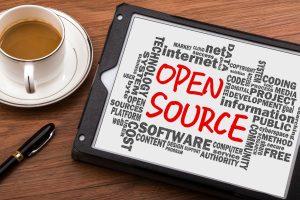

The healthcare industry is undergoing a significant digital transformation. Patients increasingly demand convenient and efficient ways to manage their health, and healthcare providers recognize the need to adopt new Open Source technologies to improve patient care and streamline operational processes. In this rapidly evolving landscape, healthcare app development is critical. However, integrating these new apps with existing hospital systems can take time and effort. This is where opensource integrationare emerging as game-changers.
According to a recent HIMSS Analytics report, over 70% of healthcare organizations plan to increase their investment in digital health solutions by 2025. However, integrating these new apps with legacy hospital systems, often built on proprietary technologies, can be a significant hurdle. Traditional integration methods can be expensive, time-consuming, and require ongoing vendor lock-in, limiting flexibility and innovation.
Open-source integration offers a compelling alternative. Open source software (OSS) is code that is publicly accessible and can be freely modified and distributed. Open-source integration leverages this freely available code to build connectors that seamlessly link healthcare apps with existing hospital systems.
Developing and maintaining custom integration solutions can be expensive. Open-source integration use readily available code, significantly reducing development costs compared to traditional methods. Additionally, open-source eliminates vendor lock-in, meaning you’re not tied to a specific vendor’s pricing for ongoing maintenance and support.
Open source code allows for greater flexibility and customization compared to proprietary solutions. Make the code your own! Tailor it to your specific requirements and connect it with various healthcare apps and systems.
Open-source software is constantly reviewed and improved by a global community of developers. This collaborative approach can lead to a higher security level than closed-source solutions. Additionally, the transparency of open-source code allows you to understand exactly how the integration works, giving you more control over your data.
Leveraging open-source integration tools for your healthcare app unlocks a robust developer community. This vast network of programmers offers invaluable support: answering questions, troubleshooting issues, and collaborating on improvements.
Open-source software is constantly evolving. By choosing open-source integration, you ensure your healthcare app integrations stay up-to-date with the latest technologies and security standards. This ensures your investment stays relevant and adaptable as healthcare IT evolves.
The Benefits of Open Source Integration for Healthcare App Development
Open-source integration offer several vital benefits specifically for healthcare app development:
How Suma Soft Can Help
Suma Soft is a leading provider of healthcare app development. We understand the unique challenges of integrating healthcare apps with existing hospital systems. Our team of experienced developers can leverage open-source integration to create secure, scalable, and cost-effective solutions that meet your specific needs.
We offer a comprehensive suite of healthcare app development, including:
Open-source integration offers a powerful and cost-effective way to connect your healthcare apps with existing hospital systems. Partner with Suma Soft and unlock a team of seasoned developers. Their expertise in open-source technologies empowers them to craft a seamless and future-ready integration solution for your needs.
The case of Colin Marma, who went missing in Garrison, New York, has now turned…
In numerology, angel numbers are sequences of numbers that are known to represent divine messages…
Beautiful hand-drawn animation, fascinating environments, and cozy storytelling abound at Studio Ghibli. You are on…
Renowned for their vibrant food scene, low prices, and enticing tastes, Chinatown hawker centres are…
The Indian Premier League (IPL) is one of the world's biggest cricket leagues, famous for…
There are a lot of websites on the internet that provide a range of services;…